Adilson Marques da Cunha
Hybrid Session-based News Recommendation using Recurrent Neural Networks
Jun 22, 2020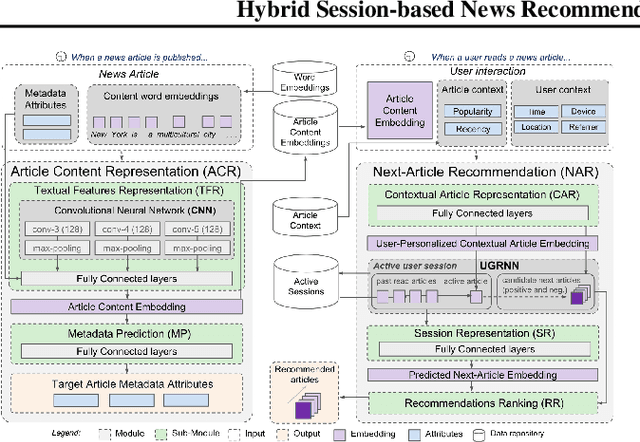
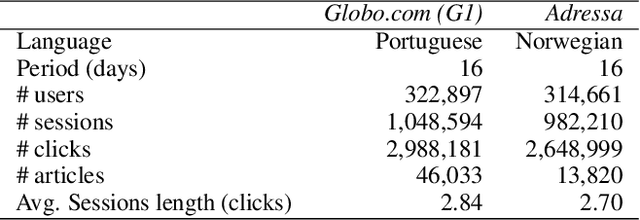

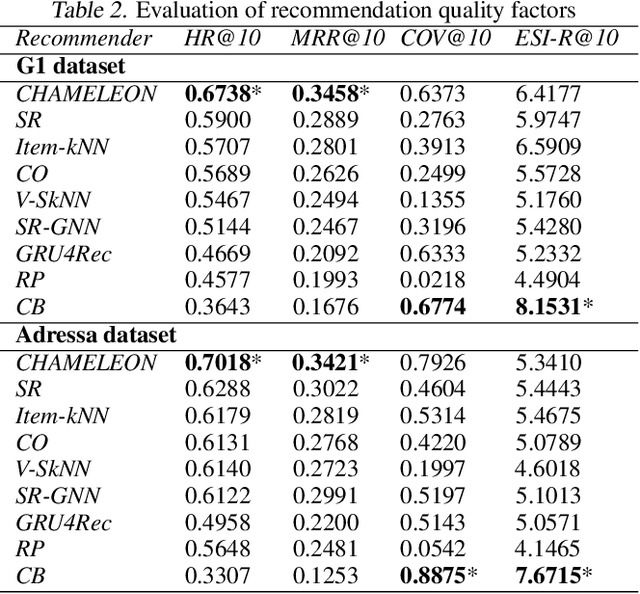
Abstract:We describe a hybrid meta-architecture -- the CHAMELEON -- for session-based news recommendation that is able to leverage a variety of information types using Recurrent Neural Networks. We evaluated our approach on two public datasets, using a temporal evaluation protocol that simulates the dynamics of a news portal in a realistic way. Our results confirm the benefits of modeling the sequence of session clicks with RNNs and leveraging side information about users and articles, resulting in significantly higher recommendation accuracy and catalog coverage than other session-based algorithms.
Bottom-Up Meta-Policy Search
Oct 22, 2019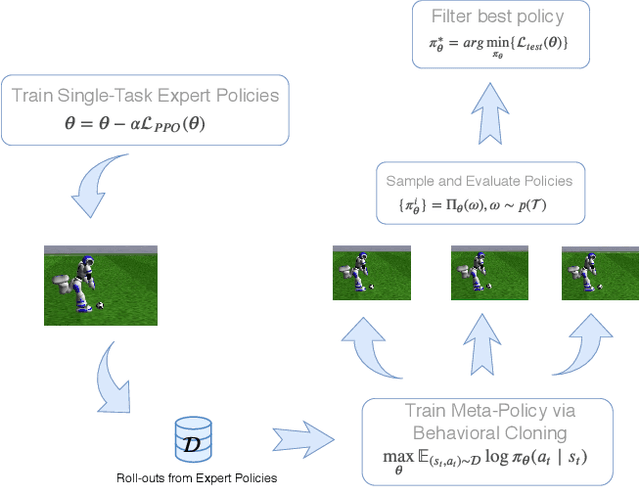

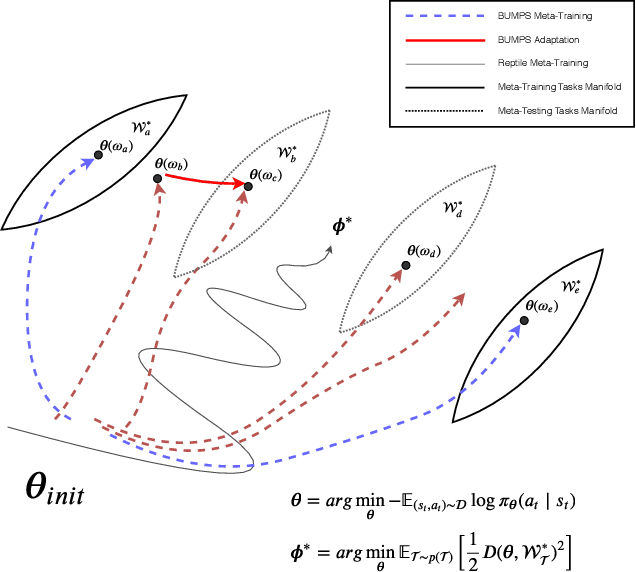

Abstract:Despite of the recent progress in agents that learn through interaction, there are several challenges in terms of sample efficiency and generalization across unseen behaviors during training. To mitigate these problems, we propose and apply a first-order Meta-Learning algorithm called Bottom-Up Meta-Policy Search (BUMPS), which works with two-phase optimization procedure: firstly, in a meta-training phase, it distills few expert policies to create a meta-policy capable of generalizing knowledge to unseen tasks during training; secondly, it applies a fast adaptation strategy named Policy Filtering, which evaluates few policies sampled from the meta-policy distribution and selects which best solves the task. We conducted all experiments in the RoboCup 3D Soccer Simulation domain, in the context of kick motion learning. We show that, given our experimental setup, BUMPS works in scenarios where simple multi-task Reinforcement Learning does not. Finally, we performed experiments in a way to evaluate each component of the algorithm.
On the Importance of News Content Representation in Hybrid Neural Session-based Recommender Systems
Aug 19, 2019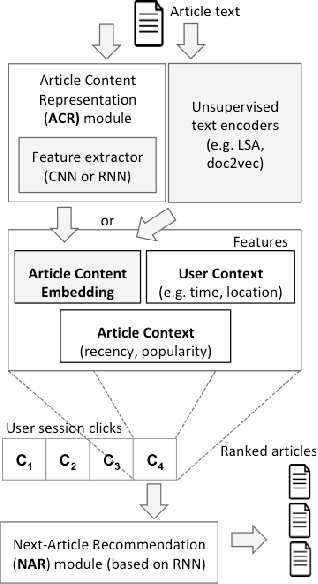
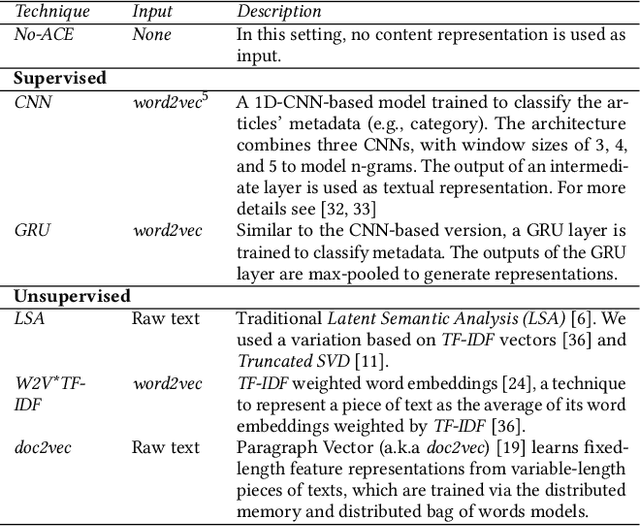


Abstract:News recommender systems are designed to surface relevant information for online readers by personalizing their user experiences. A particular problem in that context is that online readers are often anonymous, which means that this personalization can only be based on the last few recorded interactions with the user, a setting named session-based recommendation. Another particularity of the news domain is that constantly fresh articles are published, which should be immediately considered for recommendation. To deal with this item cold-start problem, it is important to consider the actual content of items when recommending. Hybrid approaches are therefore often considered as the method of choice in such settings. In this work, we analyze the importance of considering content information in a hybrid neural news recommender system. We contrast content-aware and content-agnostic techniques and also explore the effects of using different content encodings. Experiments on two public datasets confirm the importance of adopting a hybrid approach. Furthermore, we show that the choice of the content encoding can have an impact on the resulting performance.
Contextual Hybrid Session-based News Recommendation with Recurrent Neural Networks
Apr 15, 2019

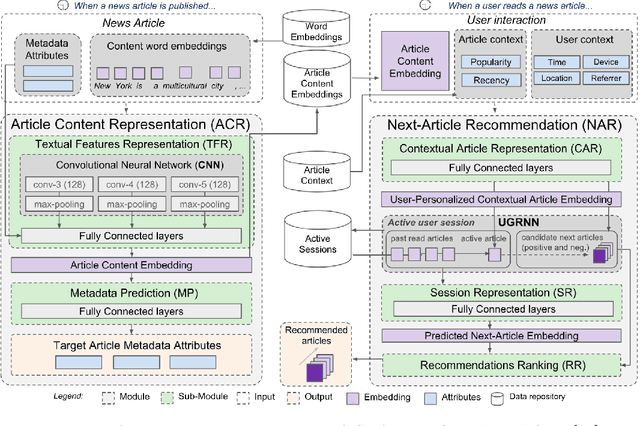
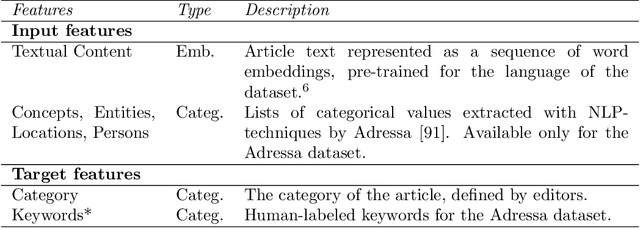
Abstract:Recommender systems help users deal with information overload by providing tailored item suggestions to them. The recommendation of news is often considered to be challenging, since the relevance of an article for a user can depend on a variety of factors, including the user's short-term reading interests, the reader's context, or the recency or popularity of an article. Previous work has shown that the use of Recurrent Neural Networks is promising for the next-in-session prediction task, but has certain limitations when only recorded item click sequences are used as input. In this work, we present a hybrid, deep learning based approach for session-based news recommendation that is able to leverage a variety of information types. We evaluated our approach on two public datasets, using a temporal evaluation protocol that simulates the dynamics of a news portal in a realistic way. Our results confirm the benefits of considering additional types of information, including article popularity and recency, in the proposed way, resulting in significantly higher recommendation accuracy and catalog coverage than other session-based algorithms. Additional experiments show that the proposed parameterizable loss function used in our method also allows us to balance two usually conflicting quality factors, accuracy and novelty. Keywords: News Recommender Systems, Session-based Recommendation, Artificial Neural Networks, Context-awareness, Hybridization
Learning Humanoid Robot Motions Through Deep Neural Networks
Jan 02, 2019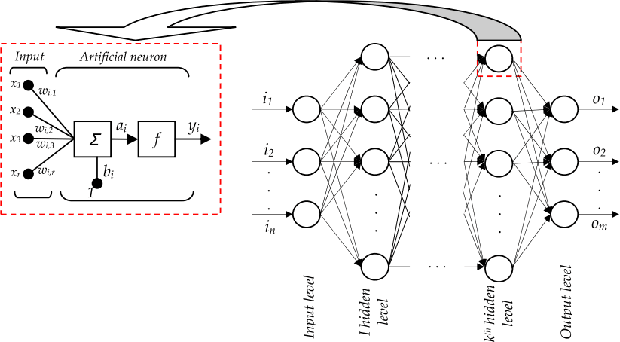

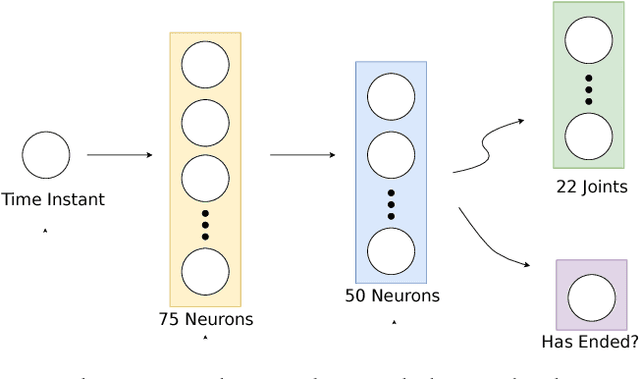
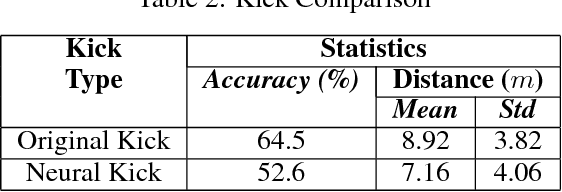
Abstract:Controlling a high degrees of freedom humanoid robot is acknowledged as one of the hardest problems in Robotics. Due to the lack of mathematical models, an approach frequently employed is to rely on human intuition to design keyframe movements by hand, usually aided by graphical tools. In this paper, we propose a learning framework based on neural networks in order to mimic humanoid robot movements. The developed technique does not make any assumption about the underlying implementation of the movement, therefore both keyframe and model-based motions may be learned. The framework was applied in the RoboCup 3D Soccer Simulation domain and promising results were obtained using the same network architecture for several motions, even when copying motions from another teams.
News Session-Based Recommendations using Deep Neural Networks
Sep 17, 2018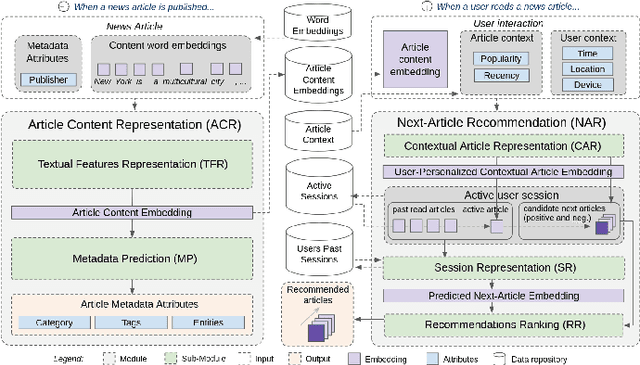
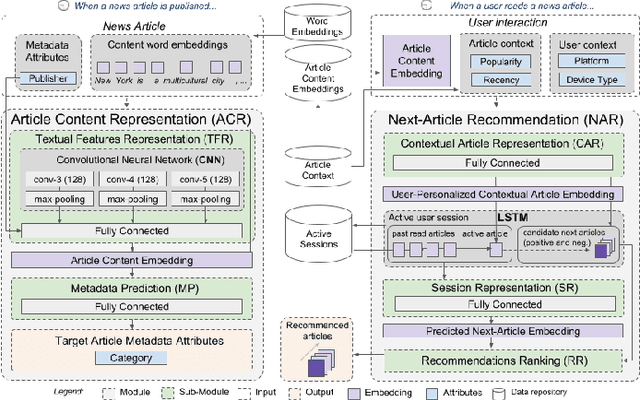
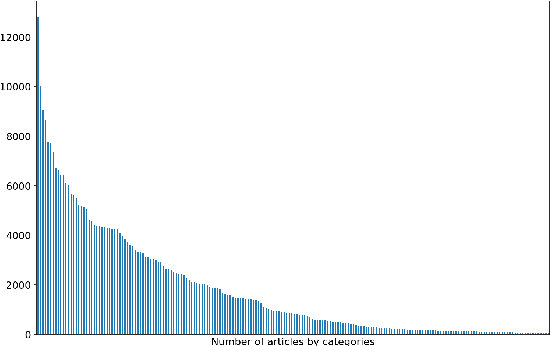
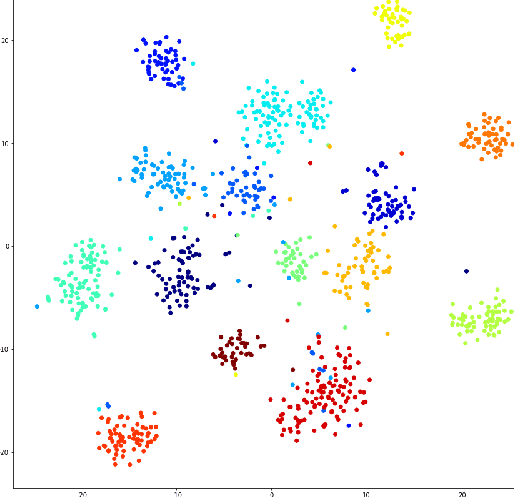
Abstract:News recommender systems are aimed to personalize users experiences and help them to discover relevant articles from a large and dynamic search space. Therefore, news domain is a challenging scenario for recommendations, due to its sparse user profiling, fast growing number of items, accelerated item's value decay, and users preferences dynamic shift. Some promising results have been recently achieved by the usage of Deep Learning techniques on Recommender Systems, specially for item's feature extraction and for session-based recommendations with Recurrent Neural Networks. In this paper, it is proposed an instantiation of the CHAMELEON -- a Deep Learning Meta-Architecture for News Recommender Systems. This architecture is composed of two modules, the first responsible to learn news articles representations, based on their text and metadata, and the second module aimed to provide session-based recommendations using Recurrent Neural Networks. The recommendation task addressed in this work is next-item prediction for users sessions: "what is the next most likely article a user might read in a session?" Users sessions context is leveraged by the architecture to provide additional information in such extreme cold-start scenario of news recommendation. Users' behavior and item features are both merged in an hybrid recommendation approach. A temporal offline evaluation method is also proposed as a complementary contribution, for a more realistic evaluation of such task, considering dynamic factors that affect global readership interests like popularity, recency, and seasonality. Experiments with an extensive number of session-based recommendation methods were performed and the proposed instantiation of CHAMELEON meta-architecture obtained a significant relative improvement in top-n accuracy and ranking metrics (10% on Hit Rate and 13% on MRR) over the best benchmark methods.
 Add to Chrome
Add to Chrome Add to Firefox
Add to Firefox Add to Edge
Add to Edge